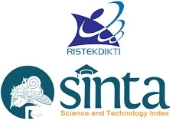Analisis Kebutuhan Keterampilan Berbahasa Jepang di Bidang Perhotelan: Studi Kasus Mahasiswa Prodi Manajemen Perhotelan
Abstract
ABSTRACT
The purpose this research is to investigate the interns of the Hospitality Management study program at Padang State University in terms of their needs and problems in using Japanese language skills namely listening, speaking, reading, and writing related to their work during their internships in various hotels before graduating. The participants were 60 intern students and three supervisors who worked in various hotels. Data collection was carried out through questionnaires and interviews. The findings reveal that most of the intern students who work in hotels evaluate their Japanese language skills at a moderate level. Students feel the need to improve their Japanese language skills. Of the four Japanese skills, listening and speaking are the most problematic. Meanwhile, between writing and reading abilities, students feel competent in reading skills rather than writing. The results showed that students' Japanese language skills did not increase, especially in writing and speaking skills which would have an impact on the quality of performance and impact on the excellent service provided to hotel guests. Therefore, there is a need for cooperation from various parties to make this happen.
ABSTRAK
Tujuan penelitian ini untuk menginvestigasi mahasiswa magang program studi Manajeman Perhotelan di Universitas Negeri Padang dalam hal kebutuhan dan masalah mereka dalam menggunakan keterampilan bahasa Jepang yakni mendengarkan, berbicara, membaca, dan menulis terkait dengan pekerjaan mereka selama magang di berbagai hotel sebelum lulus. Partisipannya 60 mahasiswa magang dan tiga orang supervisor yang bekerja di berbagai hotel. Pengumpulan data melalui kuesioner dan wawancara. Sebagian besar mahasiswa magang yang bekerja di hotel mengevaluasi diri terhadap kemampuan bahasa Jepang yakni di tingkat sedang. Mahasiswa perlu meningkatkan kemampuan bahasa Jepang. Dari keempat kemampuan berbahasa Jepang, kemampuan mendengarkan dan berbicara yang paling bermasalah. Sedangkan antara kemampuan menulis dan membaca, mahasiswa merasa berkemampuan dalam membaca daripada menulis. Hasil penelitian menunjukkan bahwa kemampuan keterampilan bahasa Jepang mahasiswa tidak meningkat, khususnya pada keterampilan menulis dan berbicara akan berakibat pada kualitas kinerja dan berdampak pada pelayanan prima yang diberikan pada tamu hotel. Oleh karena itu, perlu adanya kerjasama dari berbagai pihak untuk mewujudkan hal ini.
Keywords
Full Text:
PDFReferences
Anele, K. K. (2021). Assessing the impact of COVID-19 on the Indonesian tourism industry. Journal of Indonesian Tourism, Hospitality and Recreation, 4(2), 107–120.
Atmowardoyo, H. (2018). Research methods in TEFL studies: Descriptive research, case study, error Analysis, and R & D. Journal of Language Teaching and Research, 9(1), 197-204.
Bacquet, J. N. (2020). Implications of summative and formative assessment in Japan – A review of the current literature. International Journal of Education and Literacy Studies, 8(2), 28-35.
Candra, L. F. K., & Rekha, A. (2020). the Effects of pandemic era to tourism industry in Tangerang. Journal of Indonesian Tourism, Hospitality and Recreation, 3(2), 169–175.
Freiermuth, M. R., & Ito, M. F. (2020). Seeking the source: The effect of personality and previous experiences on university students’ L2 willingness to communicate. Learning and Motivation, 71, 101640.
Hartati, I. (2020). Strategi pembangunan SDM Kementerian Keuangan Republik Indonesia dalam menghadapi tantangan era disrupsi 4.0. Jurnal BPPK : Badan Pendidikan dan Pelatihan Keuangan, 13(1), 109–129.
Irgashevich, S. T., Erkin, G., & Dilnoza, S. (2022). Importance of foreign languages in developing hospitality and tourism sector of Uzbekistan. International Scientific Research Journal, 3(9), 2776–0979.
Juangsih, J. (2022). Students’ perceptions on CLIL based material development of Japanese language for tourism. Atlantis Press. 398–404.
Long, M. H. (2010). Methodological issues in learner needs analysis. Second Language Needs Analysis. 19 - 76.
Morgan, N., & Pritchard, A. (2019). Gender matters in hospitality (Invited paper for ‘luminaries’ special issue of international journal of hospitality management). International Journal of Hospitality Management, 76(6), 38–44.
Nurhayati Taufik, & Allicia Deana Santosa. (2022). New normal attribute destination as strategy for tourism. Journal of Indonesian Tourism, Hospitality and Recreation, 5(2), 193–208.
Perrotta, G. (2019). The “acceptance” in the elaboration of mourning in oncological diseases: Definition, theoretical models and practical applications: Needs analysis and subjective oncological reality. Biomedical Journal of Scientific & Technical Research, 21(1), 15573-15585.
Reis, J., Melão, N., Salvadorinho, J., Soares, B., & Rosete, A. (2020). Service robots in the hospitality industry: The case of Henn-na hotel, Japan. Technology in Society, 63, 101423.
Santoso, I. (2014). Pembelajaran bahasa asing di Indonesia: Antara globalisasi dan hegemoni. Jurnal Pendidikan Bahasa dan Sastra, 14(1), 1-11.
Silva, G. A. S. K., F, Wanakulasuriya B. N., & H, A. B. J. (2018). A review of the skill shortage challenge in construction industry in Sri Lanka. International Journal of Economics, Business and Management Research, 2(1), 75–89.
Teng, W., Ma, C., Pahlevansharif, S., & Turner, J. J. (2019). Graduate readiness for the employment market of the 4th industrial revolution. Education + Training, 61(5), 590–604.
Van Geel, M., Keuning, T., Frèrejean, J., Dolmans, D., van Merriënboer, J., & Visscher, A. J. (2019). Capturing the complexity of differentiated instruction. School Effectiveness and School Improvement, 30(1), 51–67.
Vance, J. (2021). Precision and perceptual clarity. Australasian Journal of Philosophy, 99(2), 379–395.
DOI: https://doi.org/10.17509/jithor.v6i1.52424
Refbacks
- There are currently no refbacks.

This work is licensed under a Creative Commons Attribution-ShareAlike 4.0 International License.
eISSN : 2654-4687
pISSN : 2654-3893
This work is licensed under Creative Commons Attribution-ShareAlike 4.0 International License















